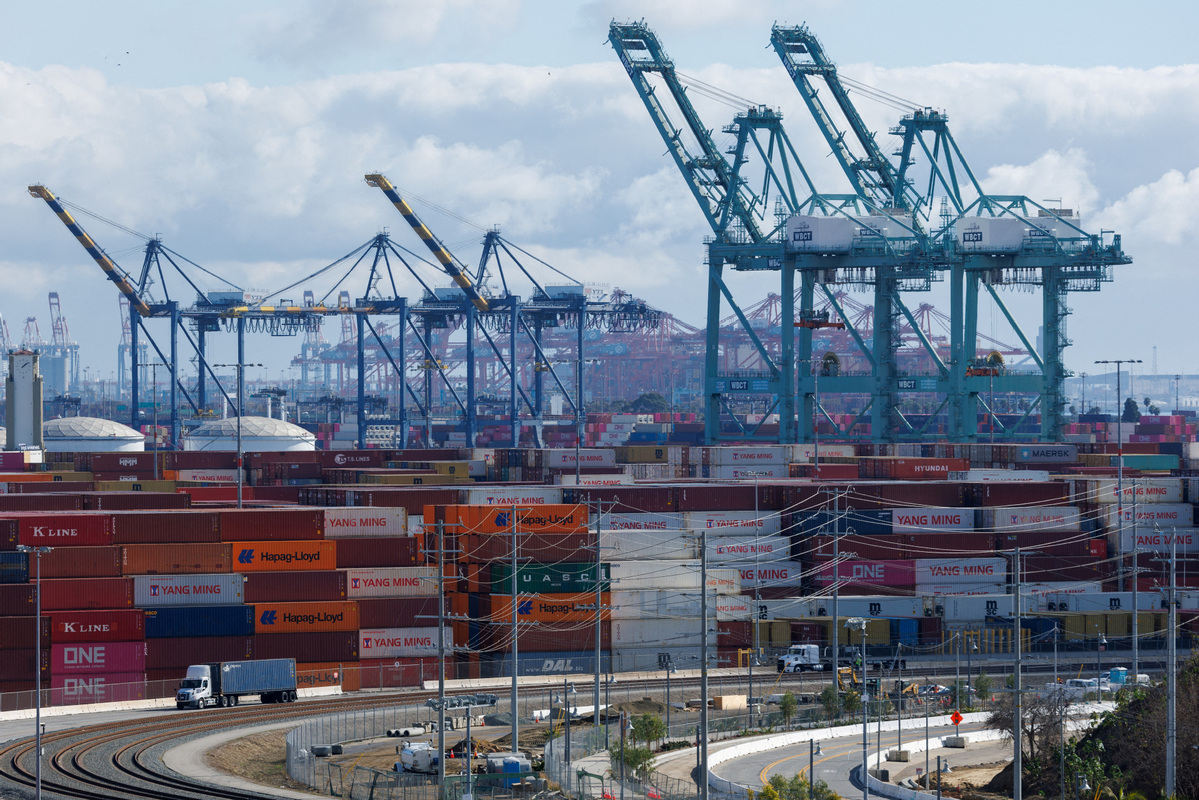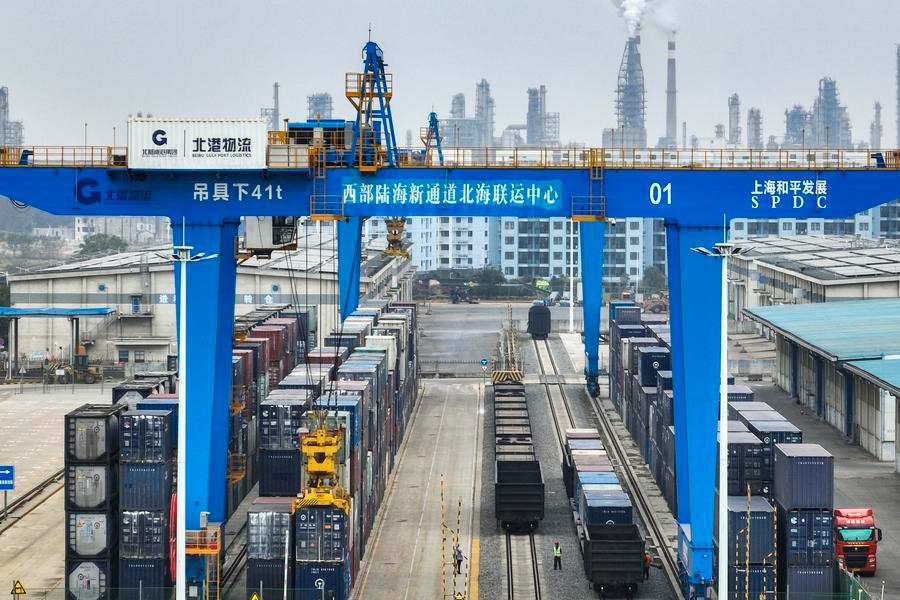Beijing assessing Washington offer for trade negotiations
Commerce ministry stresses that talks can only follow US show of sincerity


China said on Friday it is evaluating the possibility of trade talks with the United States, in the first and clearest indication that Beijing may be open to dialogue if Washington demonstrates genuine sincerity with clear actions.
Industry experts said that China's latest remarks did not signal a softening in its position, but rather a strategic flexibility grounded in the need to safeguard national interests and global economic stability.
Senior US officials have reached out multiple times in recent days through relevant parties in the hope of starting negotiations with China on tariffs, a spokesperson from the Ministry of Commerce said on Friday.
"China is currently assessing the situation, but our position has always been clear," the spokesperson said. "If it's a fight, we'll fight to the end. If it's a talk, the door is wide open."
Tu Xinquan, director at the University of International Business and Economics' China Institute for WTO Studies, said: "China's remarks reflect a flexible posture rather than a softened stance. It is a measured stance based on a full assessment of both domestic and international conditions."
"The ultimate goal for the world's two largest economies is to return to the negotiating table, as long as the US demonstrates sincerity — such as removing its unilateral tariff hikes. Otherwise, China is fully prepared to continue dealing with a prolonged trade war," he said.
The spokesman from the commerce ministry also stressed that the tariff war was launched unilaterally by the US and that any return to the negotiating table must be met with "genuine sincerity" from Washington. That includes correcting past missteps and rolling back the unilateral tariffs imposed on Chinese goods.
"Saying one thing and doing another — or even trying to use talks as a cover for coercion and blackmail — won't work with China," the spokesman added.
Xing Ziqiang, chief economist at Morgan Stanley China, predicted that the weighted average tariff imposed by the US on Chinese goods may be reduced to a certain extent by the end of the second quarter, and broader tariff reductions are more likely to occur in the second half of the year, especially toward the end of the fourth quarter.
According to him, the signals also reflect a global dynamic at play, as most countries have adopted a wait-it-out, delay, or stonewalling strategy.
"The US also hopes to disrupt this balance by portraying China as already negotiating, to weaken the resolve between China and other WTO members, shaking the confidence of third parties, and thereby creating opportunities to apply pressure on China," he said.
At home, Washington is facing mounting pressure to rethink its tariff strategy. According to Reuters, US consumer confidence fell in April to an almost five-year low on growing pessimism about prospects of the economy and labor market due to tariffs.
Former treasury secretary Janet Yellen weighed in on Thursday, warning that Donald Trump's tariff policies have had a "tremendously adverse" impact on the US economy. She cautioned that these measures risk "hobbling" US firms — especially those reliant on critical mineral imports from China.
While the US struggles to manage the fallout, companies from markets such as the European Union are striving to strengthen trade ties with China.
Tobias Meyer, CEO of major German logistics service provider DHL Group, said that the US' tariff hikes will provide ample opportunities for closer cooperation between China and the European Union, and adversely impact the competitiveness of US exports while creating opportunities for others.
"We are strong believers in the benefits of free trade," said Meyer. However, such a system also requires large exporters to open their markets.
"Against this backdrop, we expect that China's trade with the global market, excluding the US, will continue to expand," he added.
Contact the writers at chengyu@chinadaily.com.cn




































